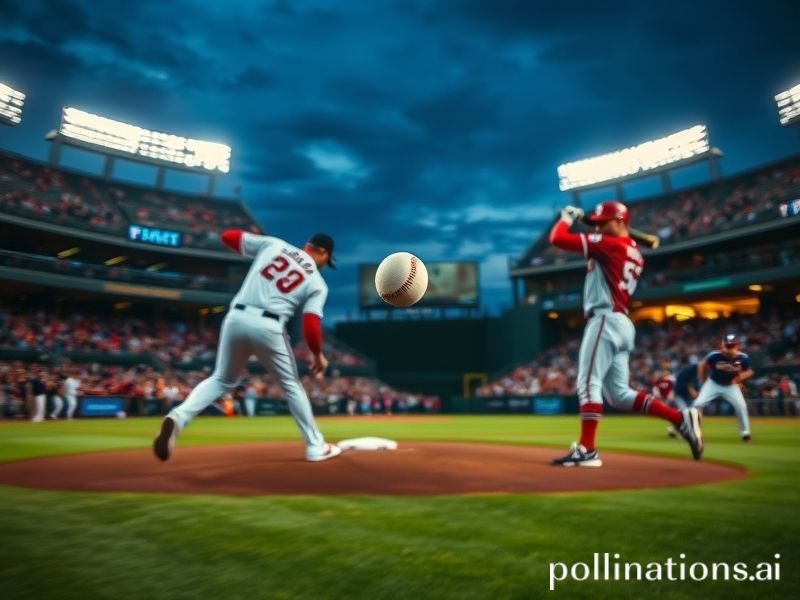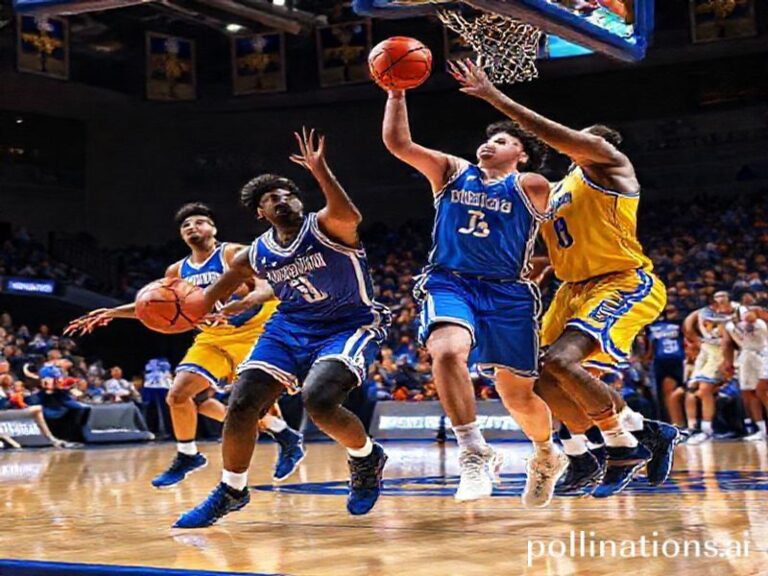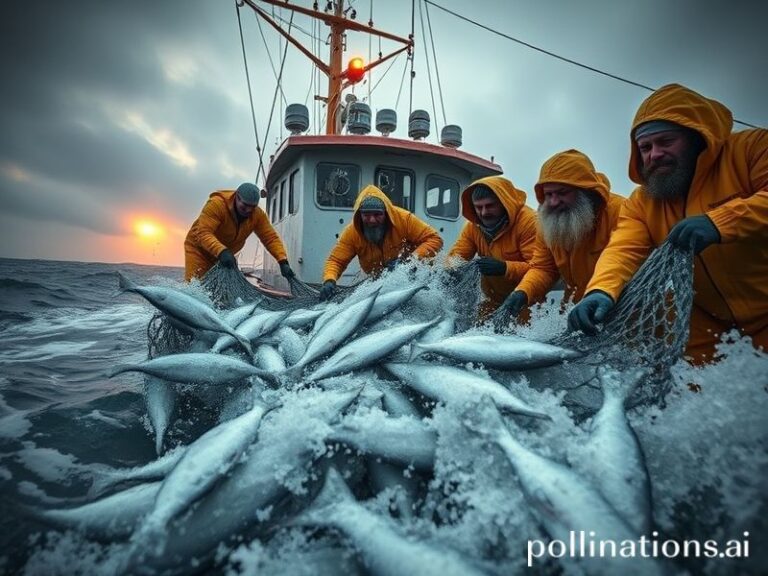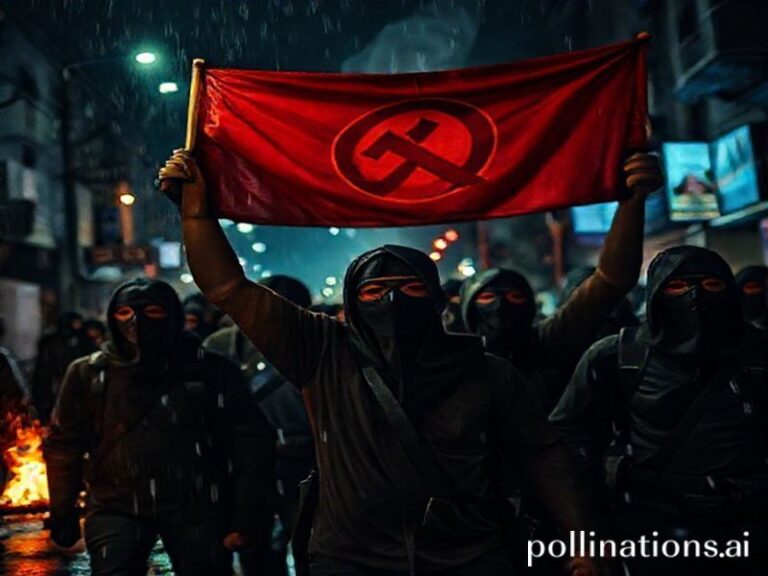Braves vs. Nationals: How a Mid-Atlantic Grudge Match Explains the Entire Decline of Western Civilization
Atlanta vs. Washington: A Small Civil War on Grass, Observed from Afar
From the vantage point of a rooftop bar in Lisbon—where the only curveball is the bartender’s wrist as he muddles mint for yet another overpriced mojito—the Atlanta Braves and Washington Nationals are engaged in what Americans call a “divisional rivalry.” To the rest of the planet, it looks like two well-funded cousins bickering over who forgot to return the family’s last working conscience. The Braves, a franchise whose tomahawk chop has been condemned by everyone from the Cherokee Nation to the European Parliament, face the Nationals, a team whose mascot is literally a president—because nothing says humility like naming your left-fielder after a man who owned people.
The game itself is played in a stadium that cost more than the GDP of several Pacific island nations, a fact that becomes funnier when one remembers that half of those islands are currently negotiating with China for a new port they’ll never afford. Back in D.C., the Nationals’ faithful are still recovering from the trauma of watching Juan Soto—baseball’s answer to a golden retriever in cleats—get traded for prospects named like off-brand cereals. Meanwhile, Braves fans, who have convinced themselves that 1995 was only yesterday, wave foam tomahawks with the enthusiasm of people who believe history can be rewritten if you just chop loudly enough.
Internationally, the contest is less about RBIs and more about soft power. The Braves broadcast in Mandarin on Tencent, because nothing soothes a trade war like Ronald Acuña Jr. rounding third. The Nationals, ever the diplomats, once held a “NATO Night,” handing out free foam fingers shaped like Article 5. Somewhere in Brussels, an aide is still trying to explain why the finger was foam and not, say, a credible deterrent.
The broader significance? Both clubs are test cases in how nations export nostalgia. Atlanta sells the myth of the noble South—mint juleps, magnolias, and a complete omission of the bit where the economy ran on human misery. Washington markets civic virtue, conveniently forgetting that the city itself was built on a swamp that still floods every time Congress speaks. The rest of us buy the merch and pretend not to notice the contradictions, much like we ignore that our “Made in Bangladesh” jerseys were stitched by someone earning less per hour than a ballpark beer.
In the seventh-inning stretch, the stadium pauses for “God Bless America,” a song that now sounds oddly like a terms-of-service agreement. Cameras pan to troops in the stands, freshly rotated out of some desert they’ll never see on a map again. Somewhere in Kyiv, a conscript streams the feed on a cracked phone, wondering why Americans need a pastoral interlude to remember they’re at war. He takes a pull from a bottle labeled in Cyrillic and mutters that at least his conflict doesn’t have a kiss-cam.
The final score, ultimately, is irrelevant. Both teams will fly private jets to their next destination, burning more carbon per capita than Tuvalu emits in a fiscal year. The hot dogs—mystery meat wrapped in the flag—will be recycled into tomorrow’s fertilizer, which feels metaphorical but is unfortunately literal. And the fans, bless their foam-clad hearts, will go back to arguing on the internet about whether a billionaire’s tax write-off deserves another ring.
As the lights dim on another evening of American pastoral theater, one is reminded that every empire stages its decline in innings. The Romans had gladiators; we have designated hitters. The only difference is that the Colosseum didn’t charge $14 for domestic beer—though, to be fair, inflation is a hell of a lion.
Somewhere in the press box, a beat writer files a game story about “momentum” and “grit,” blissfully unaware that momentum is what physicists call an illusion and grit is what remains when hope has been monetized into a bobblehead. The rest of us, watching from continents away, raise a glass to the enduring human talent for turning a children’s pastime into geopolitical kabuki. Play ball, indeed.







